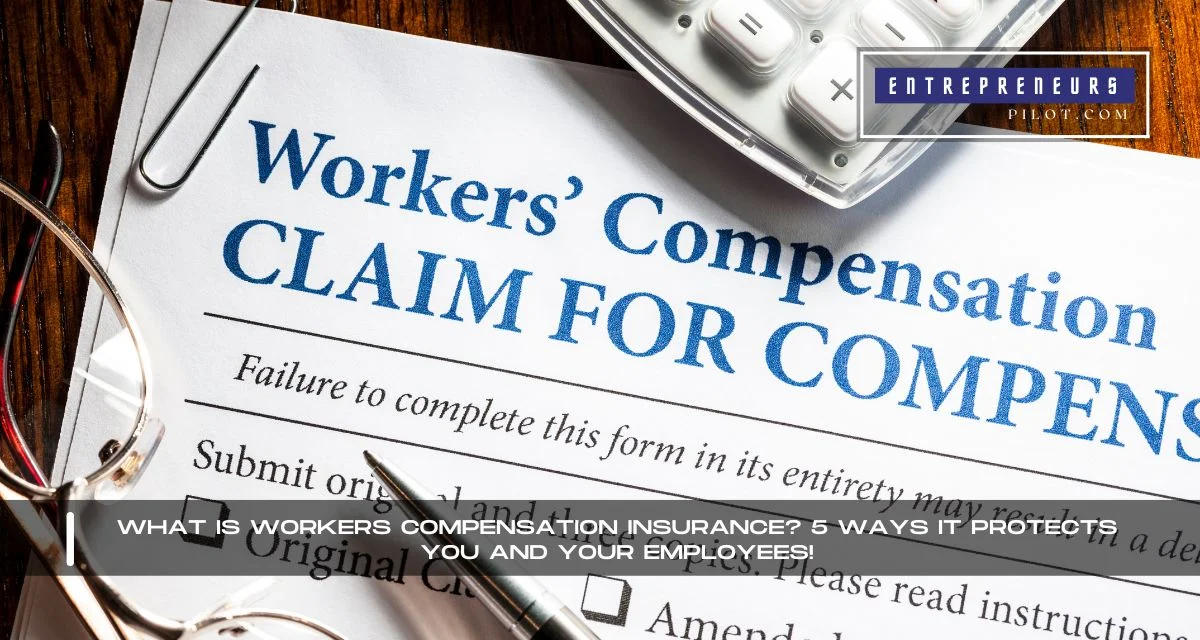Introduction
Navigating the complexities of workplace safety and legal responsibilities can be daunting for any business owner. The question of What Is Workers Compensation Insurance? is more than just a query; it’s a crucial piece of the puzzle in creating a secure and productive work environment. This insurance isn’t just a regulatory requirement—it’s a safeguard for both you and your employees, offering protection and peace of mind through its comprehensive coverage.
In this deep dive, we explore the essence of workers’ compensation insurance and unveil five key ways it stands as a shield for your business and its most valuable asset: your workforce. Let’s unlock the benefits and protections this essential insurance provides, ensuring you’re well-informed and prepared for the unexpected.
Table of Contents
Understanding Workers Compensation Insurance
Workers compensation insurance is a mandatory policy that provides medical care, rehabilitation costs, and lost income for employees who get injured or sick at work. It also offers death benefits to the families of employees who die from work-related causes. This insurance is a two-way street; it protects employees by ensuring they receive necessary support without the need for litigation, and it shields employers from potential lawsuits that could arise from workplace incidents.
1. Medical Care and Rehabilitation Coverage
One of the primary benefits of workers’ compensation insurance is its coverage for medical expenses incurred due to work-related injuries or illnesses. From emergency room visits to ongoing physical therapy, this insurance ensures that employees receive the medical attention they need to recover and return to work. It’s not just about the immediate aftermath of an accident but also about providing comprehensive care that supports an employee’s rehabilitation process, including necessary surgeries, medications, and any rehabilitation equipment.
- For Expert Financial Insights And Guidance, You Can Visit Our Sister Site – ArabsGeek.com Now!
- Curiosity Piqued? Dive Into the Most Captivating Financial Content by Visiting Our Homepage!
- Unlock Exclusive Business Opportunities! 🚀 Connect with Us Now at our Email: [email protected]!
2. Replacement Income
For employees unable to work due to work-related injuries or illnesses, workers’ compensation insurance provides a lifeline in the form of replacement income. Typically, this benefit covers a portion of the employee’s average wages, helping them stay financially afloat during their recovery period. This aspect of workers’ compensation insurance is crucial, as it alleviates the financial stress on injured workers, allowing them to focus on their recovery without the added burden of lost income.
3. Death Benefits
In the tragic event of an employee’s death due to a work-related cause, workers’ compensation insurance provides death benefits to the surviving family members. This can include funeral expenses and financial support, offering a measure of financial security during an incredibly difficult time. It’s a sobering reminder of the risks present in many workplaces and the importance of having a safety net for the worst-case scenarios.
4. Legal Liability Protection
Workers’ compensation insurance plays a critical role in protecting employers from legal liability. In most cases, when employees accept workers’ compensation benefits, they waive the right to sue their employer for the injury. This agreement is a cornerstone of the workers’ compensation system, designed to benefit both parties by providing immediate assistance to the employee and protecting the employer from potentially costly lawsuits.
5. Promotes a Safe Work Environment
Beyond the direct benefits to employees and employers, workers’ compensation insurance indirectly promotes workplace safety. Knowing that insurance rates can be affected by the number and severity of claims, businesses are incentivized to maintain safe work environments, implement comprehensive safety programs, and encourage safe work practices. This not only helps reduce the likelihood of accidents but also fosters a culture of safety and care within the organization.
Conclusion | What Is Workers Compensation Insurance?
Workers’ compensation insurance is an indispensable component of a responsible business strategy, offering vital protection for employees while safeguarding businesses from the financial and legal repercussions of workplace accidents. Understanding “What Is Workers Compensation Insurance” and its multifaceted benefits is the first step towards fostering a safer, more supportive work environment. By investing in this essential coverage, you’re not just complying with legal requirements—you’re demonstrating a commitment to your employees’ well-being and the long-term success of your business.
Frequently Asked Questions
1. Is workers’ compensation insurance required for all businesses?
Most states require businesses with employees to carry workers’ compensation insurance, but requirements can vary. It’s important to check your state’s specific laws to ensure compliance.
2. Can independent contractors be covered by workers’ compensation insurance?
Generally, independent contractors are not covered by workers’ compensation insurance. However, some businesses choose to provide coverage for contractors, or certain states may have specific provisions for coverage. Always consult with an insurance expert or attorney to understand your obligations.
3. What should an employee do if injured at work?
Employees should report the injury to their employer as soon as possible and seek medical treatment if needed. The employer will then guide them through the process of filing a workers’ compensation claim.
4. How does workers’ compensation insurance affect an employer’s liability?
Workers’ compensation insurance limits an employer’s liability for work-related injuries or illnesses by providing benefits to injured employees, who, in turn, typically cannot sue the employer for damages related to the injury.
5. Can an employee be fired for filing a workers’ compensation claim?
No, it is illegal for an employer to retaliate against an employee for filing a workers’ compensation claim. Employees are protected by state and federal laws from being fired, demoted, or discriminated against for seeking workers’ compensation benefits.











